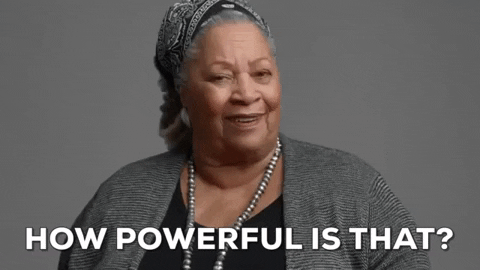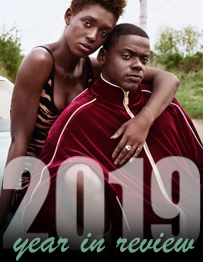Our Year in Review continues...
It’s hard to summarize the past year in Black American film as smoothly as I could if I was doing so at the end of 2018. It wasn’t just that this year’s most notable critical darlings failed to strike an emotional chord with Black audiences in comparison to recent years. There was also a lot of intense, misguided discourse online about the year’s most highly anticipated studio films like Harriet and Queen & Slim. The best of this year's crop - Fast Color, Luce and Little Woods - flew under the radar due to limited distribution and marketing. Even Jordan Peele’s ambitious Get Out follow-up Us, which was a huge hit, left a lot of people confused about its meaning. Needless to say, it was an interesting way to cap off a decade that slowly gave a new class of Black artists the freedom to make the movies they wanted without catering to a white lens.
**This is not a comprehensive selection of films**
The Internet’s disdain for last year’s Green Book spurred many conversations about white filmmakers’ ability to accurately portray Black people in their art. So it was interesting that, once again, this year’s most highly acclaimed and talked about Black movies out of prestige festivals were written and directed by white men: Trey Edward Shults’ Waves, Joe Talbot’s The Last Black Man in San Francisco and Craig Brewer’s Dolemite is My Name...
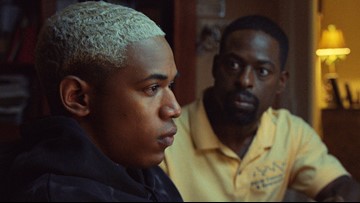
All three films contain audacious material for people on the outside looking in to illustrate accurately. But when has that ever stopped a straight, white man from doing what he wants?
In Waves, Shults attempts to portray the very unique, personal impact of Black exceptionalism, an area of life he doesn’t have personal experience in. As a result, we get empty scenes of a Black teenager punching a hole in the wall to Tyler the Creator, angrily rapping to Kendrick Lamar and cursing at his girlfriend. Shults is more interested in capturing the physical manifestations of his protagonist's (Kelvin Harrison Jr.) rightful frustration for melodramatic purposes than exploring the mental health of a fatigued Black man, which leads to a climax that is both deeply upsetting and cheap. His portrayal of a Black girl, played by the impressive Taylor Russell, is equally dehumanizing, as her function on-screen is solely to provide comfort to the broken men around her. If anything, Waves is partially redeemed by a formidable cast that also includes Sterling K. Brown, Renee Elise Goldberry and Alexa Demie.
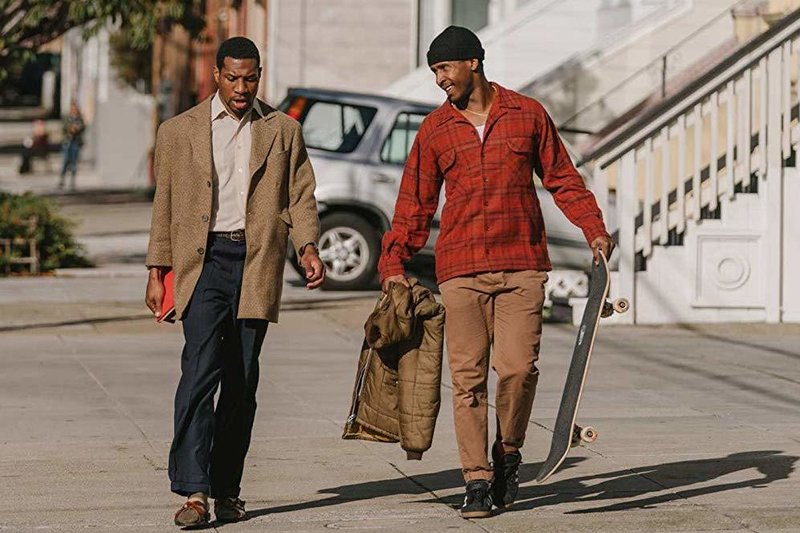
Joe Talbot’s The Last Black Man in San Francisco isn't offensive but lacks the soul and specificity that the material demands. Talbot is so preoccupied with making this film look, feel and sound poetic that the landscape of San Francisco comes off as bland and artificial. Upon viewing it, I was reminded of 2017’s The Florida Project and how Sean Baker did such a thorough job of capturing the very specific ecosystem of hidden homelessness in Kissimmee and its devastating proximity to Disney World. The Last Black Man would benefit greatly from this grittier, documentary style of filmmaking that is also visually stunning but most importantly provides information.
Dolemite Is My Name, directed by Craig Brewer and written by Scott Alexander and Larry Karaszewski, does the opposite. There’s a lot of concerted effort on display regarding the depiction of 1970s L.A. and the blaxploitation industry in all its vibrancy and grit. But it does so at the expense of its subject, missing out on vital emotional beats and opportunities for character introspection. As a result, Eddie Murphy’s performance lacks the dramatic range you would expect from a standard leading role in an entertainment biopic, by no real fault of his own. It certainly hasn’t stopped the comedian from receiving Oscar buzz. But I can’t help but wonder what this film and Murphy’s performance would’ve been if written by someone, preferably a Black screenwriter, who was unafraid to venture into Rudy Ray Moore’s psyche and childhood trauma.
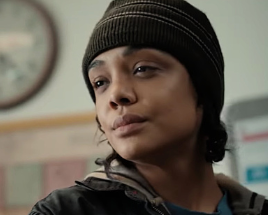 With these grandiose projects attracting Oscar buzz, films written and directed by women were left out in the cold. Fast Color and Little Woods are two great movies that premiered at festivals in 2018, struggled to find distribution and weren't released until this year. So much was made of the lack of marketing for Fast Color, a story about three generations of Black women with superpowers, that Amazon Studios picked it up as a show after the fact. It’s a shame that it won’t be consumed, appreciated and dissected by mass culture in its ideal, original form. Likewise, Nia DaCosta's bleak, Debra Granik-esque film Little Woods deserved more attention. The story about rural women on a grave mission masterfully juggles heavy, topical issues like the opiod crisis, life after prison, and the lack of abortion access in rural parts of the country. It's a dark, tense film that manages not to be too brutal to enjoy as a thriller. And for a debut feature it’s wholly impressive.
With these grandiose projects attracting Oscar buzz, films written and directed by women were left out in the cold. Fast Color and Little Woods are two great movies that premiered at festivals in 2018, struggled to find distribution and weren't released until this year. So much was made of the lack of marketing for Fast Color, a story about three generations of Black women with superpowers, that Amazon Studios picked it up as a show after the fact. It’s a shame that it won’t be consumed, appreciated and dissected by mass culture in its ideal, original form. Likewise, Nia DaCosta's bleak, Debra Granik-esque film Little Woods deserved more attention. The story about rural women on a grave mission masterfully juggles heavy, topical issues like the opiod crisis, life after prison, and the lack of abortion access in rural parts of the country. It's a dark, tense film that manages not to be too brutal to enjoy as a thriller. And for a debut feature it’s wholly impressive.
I’d be remiss not to mention Chinonye Chukwu’s Clemency which suffers from a terrible release date (the film just opened). Many of us who would like to discuss it can't because it’s only playing at two theaters. The only hope for this film as we move into 2020 is that the highly acclaimed performance by Alfre Woodard could become a last minute surprise for an Oscar nomination.
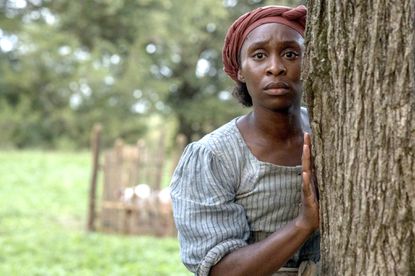
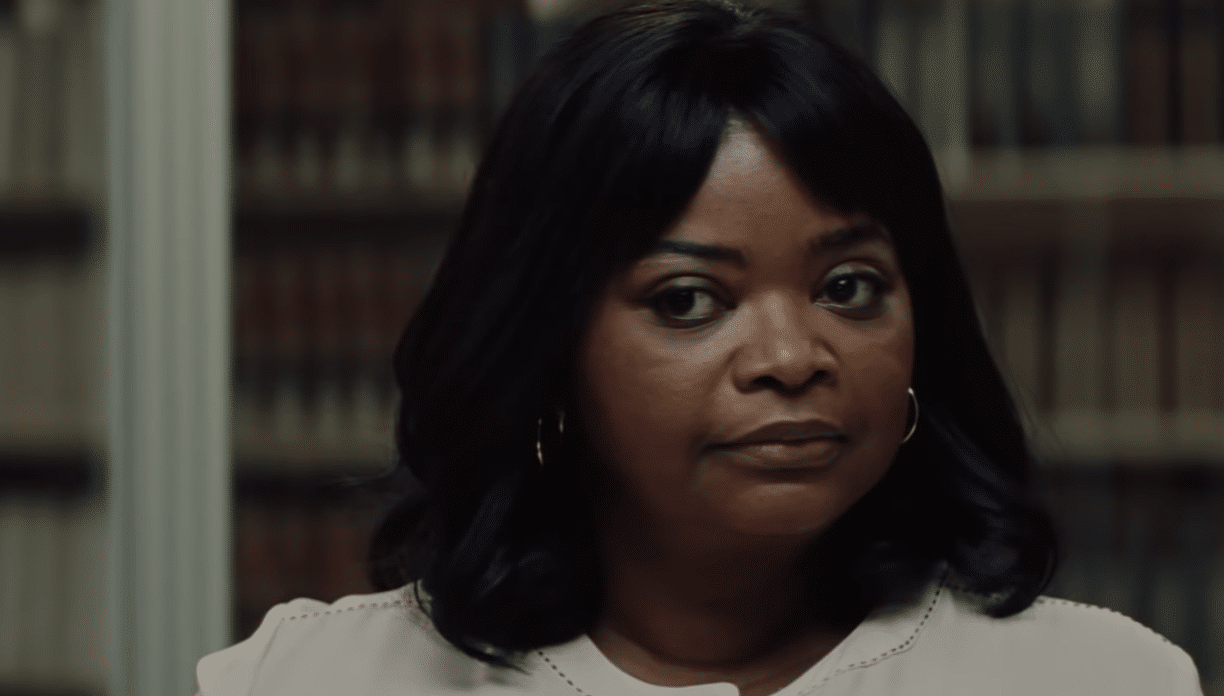
The year’s best, I have to say, were documentaries about the world’s most revered Black women, from Homecoming to Toni Morrison: The Pieces I Am and Amazing Grace, each of which felt like life-affirming love letters to an underappreciated sector of our community.
